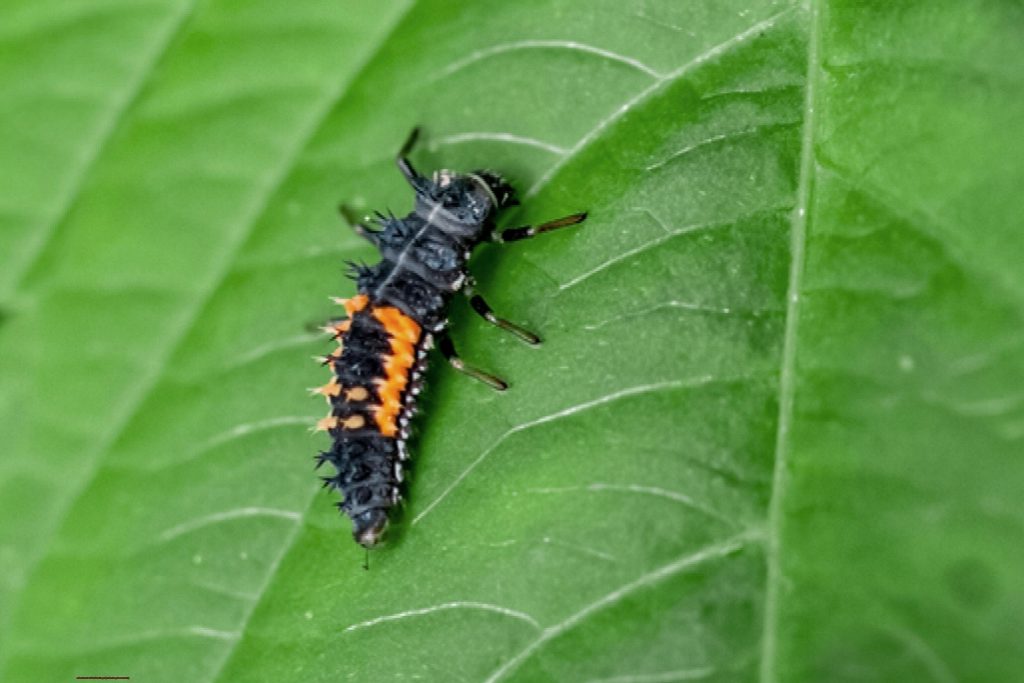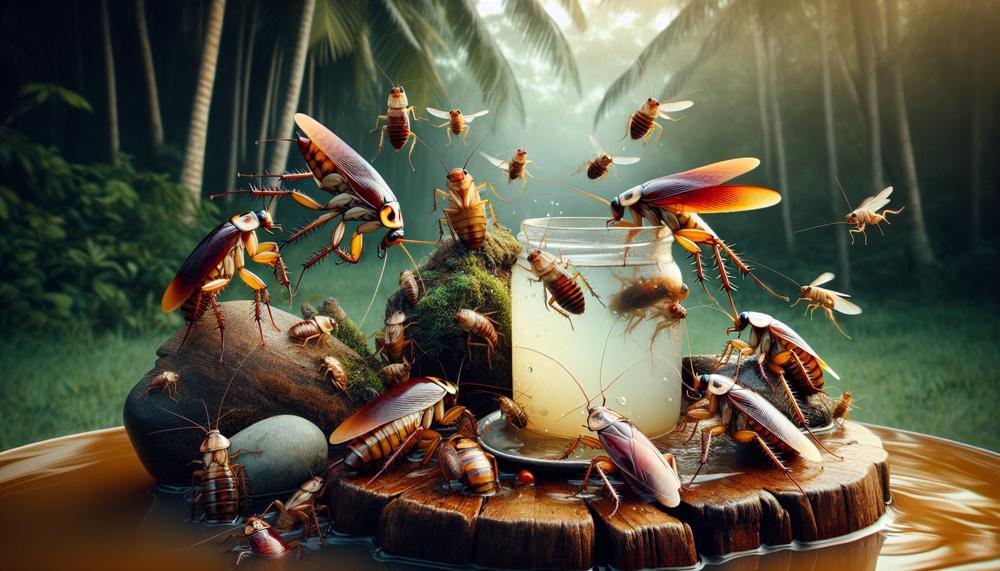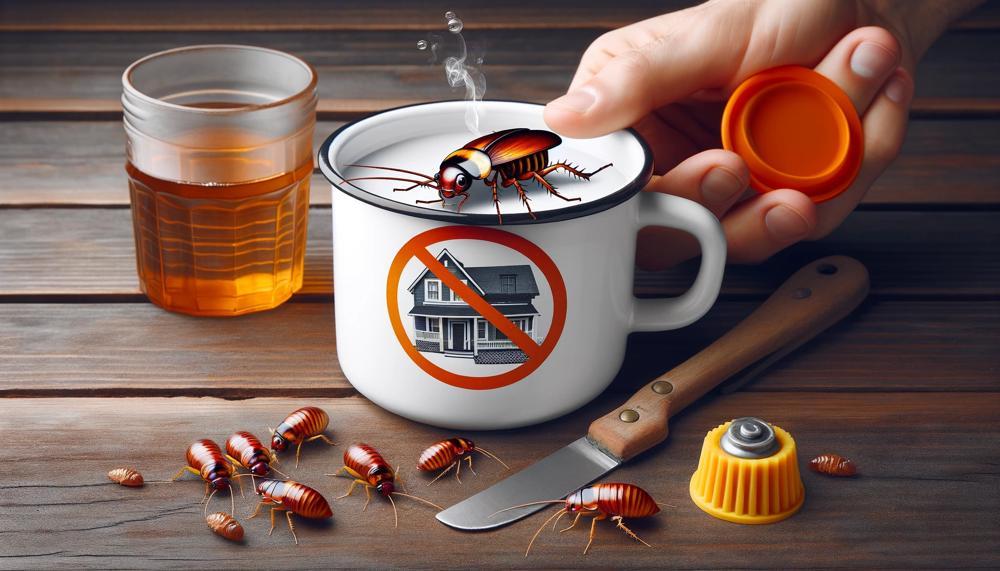Picture this: you’re relaxing in your home, minding your own business, when suddenly you spot a scaly intruder making its way across your living room floor.
No, it’s not your long lost pet iguana – it’s a lizard, and it’s not exactly welcome. These reptilian pests may seem harmless at first glance, but their presence can be quite unsettling for many people.
And when it comes to getting rid of them, there are countless old wives’ tales and DIY methods out there. However, one method that has proven to be highly effective is using cockroach spray to kill lizards.
Yes, you read that right – cockroach spray. In this blog post, we’ll dive into the science behind this unconventional approach and explore why it’s become a go-to solution for many homeowners dealing with these creepy crawly creatures.
So, hold on tight as we uncover the truth about whether cockroach spray can really take down these resilient reptiles once and for all.
Table of Contents
- 1 Can Cockroach Spray Kill Lizards?
- 2 Can Cockroach Spray Kill Garden Lizards?
- 3 Cockroach Spray May Be Harmful To Lizard Pets
- 4 Can Lizards Bite While You Are Spraying Them? Do They Even Have Teeth?
- 5 How Long Does It Take For Cockroach Spray To Kill Lizards?
- 6 Can Lizards Die If They Eat Sprayed Cockroaches?
- 7 How To Effectively Kill Lizards Using Cockroach Spray
- 8 Conclusion
Can Cockroach Spray Kill Lizards?
The brief answer is affirmative, cockroach spray can be lethal to lizards. Nevertheless, it may not be the most efficient or compassionate approach to eliminating these scaly nuisances. Lizards are advantageous creatures that aid in controlling insect populations in our abodes and gardens. But if you are facing a lizard infestation and desire to eradicate them, here’s what you should know about utilizing cockroach spray.
How Does Cockroach Spray Affect Lizards?
Cockroach spray contains insecticides that are specifically designed to target and eliminate insects such as cockroaches, ants, and other pests. These insecticides function by disrupting the nervous system of the insects, ultimately leading to their demise. However, lizards possess a distinct physiology which requires a higher concentration of insecticides to produce a similar effect.
Upon being sprayed with cockroach spray, lizards may experience dizziness or disorientation due to the chemical fumes. Yet, their low metabolic rate means they won’t absorb enough of the insecticide to result in fatality. This explains why it may take some time for lizards to perish after exposure to bug spray.
Which Ingredients in Cockroach Spray Are Toxic to Lizards?
Some prevalent ingredients in cockroach sprays, like Beta-cyfluthrin, can be toxic to lizards. This component is present in well-known brands such as Raid and Ortho Home Defense. Other products like HIT spray and Demon Max Insecticide also contain chemicals that can harm lizards.
Can Cockroach Spray Kill Garden Lizards?
Before determining if cockroach spray is safe for use on garden lizards, let us first comprehend its mechanism. Most cockroach sprays contain chemicals like pyrethroids, which are highly toxic to insects but not necessarily harmful to larger animals like lizards. However, this does not mean that using cockroach spray on lizards is without risks.
One crucial factor to consider when using cockroach spray on lizards is the amount used. If a large quantity of spray is utilized in an enclosed space, the concentration of chemicals in the air can be hazardous to lizards. This is why it is imperative to follow the instructions on the label and use the spray in a well-ventilated area.
Moreover, while the chemicals in cockroach spray may not directly harm lizards upon contact, they can still have detrimental effects if ingested or absorbed through their skin. Additionally, using these sprays can also have unintended consequences for other beneficial insects and animals in your garden. These sprays are not solely targeted towards cockroaches or lizards – they can also harm bees, ladybugs, and other helpful creatures that play vital roles in pollination and pest control.
Furthermore, using cockroach spray as a means of eliminating lizards in your garden can also lead to burstiness in their environment and food sources. These sprays may contain growth regulators that can disrupt the normal development and reproduction of insects. While this may not directly harm lizards, it can result in a decrease in food sources for them.
In conclusion, while cockroach spray may seem like a quick fix for getting rid of garden lizards, it is not without risks and consequences.
Cockroach Spray May Be Harmful To Lizard Pets
Lizards are captivating creatures that make for interesting pets, but they can also become a nuisance when they invade your home or garden. While cockroach spray may seem like a quick and easy solution to get rid of these reptiles, it can actually be harmful to your beloved lizard pets. In this article, we will explore alternative methods for eliminating lizards without resorting to toxic insecticides.
Why Cockroach Spray is Harmful to Lizard Pets
The chemicals found in cockroach spray are known as neurotoxins, which can quickly kill lizards due to their slow metabolic rate. These chemicals can be ingested by the lizards or absorbed through their skin, causing paralysis or even death. Even if the spray does not directly come in contact with the lizards, inhaling the chemicals or consuming contaminated insects can still have harmful effects.
Moreover, using insecticides like Demon Max Insecticide to eradicate lizards can disrupt the ecosystem and deplete their food source. This can potentially lead to an increase in other pests and a decline in the overall health of your garden.
Safe and Natural Alternatives
Fortunately, there are safer and more natural alternatives to cockroach spray that can effectively repel lizards without causing harm to them or the environment. Here are some options you can consider:

- Iguana-Rid – This natural repellent spray contains ingredients that produce a taste and scent that repels lizards and other pests. It is safe for use around both pets and humans and does not harm the environment.
- Bleach – While bleach may seem like a harsh chemical, it can be an effective way to get rid of lizards without causing them harm. When sprayed on lizards, it burns their skin and eliminates any eggs present.
Can Lizards Bite While You Are Spraying Them? Do They Even Have Teeth?
Lizards are often viewed as bothersome creatures in homes and gardens. However, they serve a vital purpose in controlling other pests such as cockroaches, beetles, and ants. Despite this, many people fear lizards and may resort to using cockroach spray to eradicate them. But the question remains, can lizards actually bite while being sprayed with cockroach spray? And do they possess the capability to cause harm with their teeth? As a pest control expert, I am here to provide you with clear and concise answers.
Do Lizards Have Teeth?
In short, yes, lizards do have teeth. However, their teeth are not comparable to the sharp fangs of a dog or cat. Lizard teeth are small and pointed, intended for grasping and securing their prey. They lack the ability to chew or tear through human skin.
Can Lizards Bite While Being Sprayed with Cockroach Spray?
When feeling threatened, lizards have a natural instinct to defend themselves. Therefore, it is possible for them to bite when sprayed with cockroach spray as a form of self-protection. However, their bite is not forceful enough to pierce human skin or cause any injury.
It is important to note that most cockroach sprays are not harmful to lizards. Yet, if the spray contains a high concentration of chemicals or if the lizard ingests it while consuming poisoned insects, it can be detrimental to their health.
How Does Cockroach Spray Affect Lizards?
Cockroach sprays contain chemicals that target the nervous system of insects, ultimately causing their demise. If lizards consume these contaminated insects, it can also have an indirect effect on them. The toxins can disturb their nervous system and lead to paralysis or even death.
How Long Does It Take For Cockroach Spray To Kill Lizards?
The effectiveness of cockroach spray against lizards depends on several factors, making it difficult to provide a definitive timeline. However, on average, it can take approximately 6-8 hours for the spray to take full effect.
But why does this timeframe vary? Let us delve into the perplexing factors that contribute to the duration of lizard elimination.
Firstly, the type of spray used plays a crucial role. While insecticide sprays are commonly used for pest control, their effectiveness against lizards is questionable. These sprays target the nervous system of insects, causing paralysis and eventual death. However, lizards possess a different nervous system and may not be as vulnerable to these chemicals. On the other hand, sprays designed specifically for reptiles, containing toxic ingredients like sulfur, can prove to be more lethal against lizards.
Furthermore, the concentration of chemicals in the spray is a critical factor to consider. A higher concentration may lead to a quicker demise of lizards, but it also poses a greater risk to other animals and humans. Therefore, following the instructions on the label meticulously is imperative for safe and effective use.
The size and health of the lizard also play a significant role in determining how long it takes for the spray to take effect. Larger lizards may require more time for the chemicals to work their magic, while smaller ones may succumb at a faster rate. Additionally, weakened or sick lizards may not withstand the effects of the spray as long as their healthier counterparts.
However, before reaching for the spray bottle, consider using natural alternatives for deterring lizards.
While cockroach spray may seem like an easy solution, it is not always humane or environmentally friendly.
Can Lizards Die If They Eat Sprayed Cockroaches?
Nevertheless, when it comes to pest management, the utilization of insecticides can pose a potential threat to your cherished pets. In this discourse, we delve into the dangers lizards face when ingesting cockroaches that have been sprayed with chemicals and offer alternative solutions for effective pest control.
Exposure to Perilous Toxins and Chemicals
Insecticide sprays contain potent and possibly hazardous chemicals engineered to swiftly exterminate pests. However, when lizards consume sprayed cockroaches, they are liable to ingest these toxic substances. This can result in severe health complications for lizards, ranging from digestive problems to organ damage. In extreme cases, it can even lead to their untimely demise.
Consumption of Bacteria and Other Noxious Substances
Apart from the chemicals in insecticides, sprayed cockroaches may also harbor bacteria and other harmful substances on their bodies. This is because insects often come into contact with unsanitary environments before making their way into our homes. Hence, when lizards feed on these contaminated cockroaches, they are exposed to these hazardous substances as well.
Adverse Effects on Diet and Nutrition
For lizards to maintain good health, they require a well-balanced and nutritious diet. However, if their food source (e.g. cockroaches) has been exposed to insecticides, it may not provide them with all the essential nutrients they need. This can lead to deficiencies and health issues in the long run.
Safe Alternatives for Effective Pest Control
Instead of resorting to harsh chemicals, there are more humane and eco-friendly alternatives for pest control that won’t harm your beloved lizards.
How To Effectively Kill Lizards Using Cockroach Spray
These seemingly harmless reptiles can quickly become a nuisance, leaving behind droppings that may contain harmful bacteria. But before resorting to harsh methods, let’s explore some effective and safe ways to repel these creatures from your home.
One common question is whether cockroach spray can effectively kill lizards. The answer is yes, it can. Due to their high metabolism and low metabolic rate, lizards are vulnerable to consuming or absorbing insecticide poison found in cockroach spray. Ingredients like Beta-cyfluthrin are toxic to lizards and can effectively eliminate them.
However, it’s crucial to take precautions when using any insecticide. Covering your skin and avoiding inhalation of the spray is essential. Furthermore, it’s important to note that killing lizards should not be the first option. There are many other ways to repel them without causing harm.
One effective method is by eliminating their food source. Lizards are attracted to insects, so reducing or removing their food supply can help keep them away. A clean and tidy home can also discourage lizards from entering.
Sealing cracks and holes in walls is another preventative measure against lizards entering your home. Placing furniture away from walls and using metal screens on windows and doors can also deter them. Additionally, stagnant water in your backyard can attract lizards, so keeping it clear is necessary.
If you prefer not to harm lizards, setting traps or using bait during their active hours at night can be effective in catching them alive. Another option is relying on natural predators such as cats or peacock feathers that can scare them away.
For those seeking natural DIY remedies, there are plenty of options available. Tobacco and coffee balls, mothballs, pepper spray, onion slices, or eggshells can effectively repel lizards without causing harm. However, it’s essential to remember that these methods may not work for every situation.
Conclusion
In conclusion, when it comes to dealing with lizards in your home, there are countless myths and DIY methods out there. However, one unconventional approach that has proven to be highly effective is using cockroach spray. Yes, you heard that right – cockroach spray. In this blog post, we’ve delved into the science behind this surprising solution and why it’s become a go-to for many homeowners struggling with these pesky creatures.
While cockroach spray can indeed kill lizards, it may not be the most efficient or humane method of elimination. Lizards play a crucial role in controlling insect populations in our homes and gardens, making them beneficial creatures to have around. Therefore, if you’re facing a lizard infestation but don’t want to harm them, there are several alternative options worth considering such as cutting off their food source or using natural deterrents like Iguana-Rid.
But what about using cockroach spray on garden lizards? While it may seem like a quick fix, it’s essential to consider the potential risks and consequences for other beneficial insects and animals in your garden. Moreover, if you have pet lizards, using toxic insecticides can also pose a threat to their health.
Instead of resorting to harmful chemicals, there are safer and more natural alternatives available for deterring lizards without causing harm. And while cockroach spray may seem like an easy solution for getting rid of these reptiles, it’s crucial to remember that there are many other effective ways to repel them without disrupting the ecosystem.
So next time you encounter a scaly intruder in your home or garden, take some time to weigh all your options before reaching for the cockroach spray.





